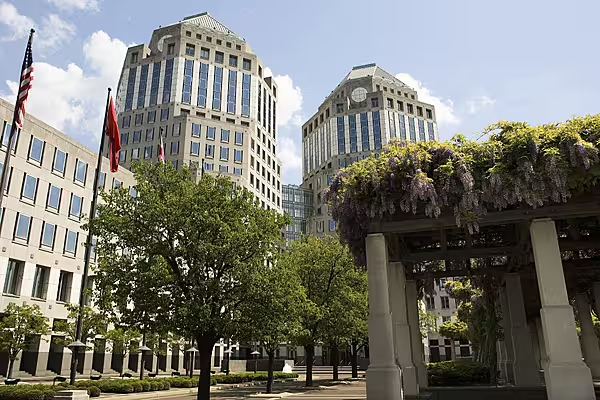The biggest proxy fight in history, pitting activist investor Nelson Peltz against Procter & Gamble Co., will also be one of the most expensive.
The two sides expect to spend a combined $60 million on the contest for a board seat at the Cincinnati-based company, according to separate regulatory filings this week by P&G and Peltz’s Trian Fund Management LP. Peltz estimated his firm will deploy $25 million to gain access to the consumer-products company’s boardroom, while P&G said it budgeted an extra $35 million to keep him out.
Driving Force
The driving force behind the high spending will be reaching the millions of individual investors who own P&G shares, said Tom Ball, a managing director in the Stamford, Connecticut, office of Morrow Sodali, a proxy-solicitation firm. Peltz, 75, suffered his first-ever loss in an activist campaign in 2015, when he tried to get on the board at DuPont Co., another old-line company that is widely held by mom-and-pop investors.
“The difference in that fight was the positive response by the individual retail holders” to DuPont’s proxy solicitation, Ball said in a telephone interview. “You have the same kind of situation here.”
The median cost of a proxy fight last year for the target company was about $1 million, according to FactSet Research Systems Inc. Apparel retailer Chico’s FAS Inc. spent the most of any target, incurring costs estimated at $5.9 million to fend off a campaign by Barington Companies Investors LLC, according to FactSet.
‘Broad’ Base
The costs of a contest typically include printing and mailing materials to stockholders as well as reimbursing banks and brokers who forward the documents to their clients. Dissidents and target companies also face fees for consultants, lawyers, financial advisers and proxy-solicitation firms, as well as any advertising to support their candidates. Even documents transmitted electronically instead of mailed add to the costs.
The P&G proxy battle has been billed as the largest ever based on the company’s market capitalization, which at $233 billion is among the biggest in the S&P 500 Index. But in such a contest the number of shareholders can be just as important, according to Ball. It’s easier and less expensive to solicit proxies at businesses that are dominated by a few large institutions, such as endowments, pension plans and money managers.
P&G, known for household brands such as Tide and Pantene, had 2.9 million common shareholders as of June 2016, according to its annual report. Apple Inc., the largest member of the S&P 500 with a market value of about $782 billion, had less than 26,000 shareholders of record as of October.
“We have a very large and a very broad shareholder base,” said Damon Jones, a P&G spokesman. “We will spend what we need to spend to ensure that our shareholders are well informed.”
Anne Tarbell, a spokeswoman for New York-based Trian, didn’t immediately return a call seeking comment.
‘Well Spent’
P&G’s expenditures will include $2.5 million for proxy solicitors D.F. King & Co. and Mackenzie Partners Inc., according to documents filed Tuesday with the U.S. Securities and Exchange Commission. The firms will devote about 450 employees to solicit shareholders on P&G’s behalf.
That is more than double the 200 people who solicited proxies for DuPont when Peltz narrowly lost a bid for board representation at the Wilmington, Delaware-based chemical company. He estimated expenditures of $8 million for his DuPont campaign, while the target company projected layouts of about $15 million beyond those customary for an annual meeting. In a Bloomberg Television interview afterward, he vowed to do better with retail investors next time.
Earlier this year, Paul Singer, the billionaire head of Elliott Management Corp., projected that his winning push for board seats at New York-based Arconic Inc. would run about $15 million, including the cost of mailing thousands of video players to retail investors with a four minute pitch on his activist campaign. Arconic slated spending of $17.5 million.
“On balance, retail shareholders tend to support management more than dissidents,” Ball said. “It’s money well spent to get them to return a proxy.”
News by Bloomberg, edited by ESM. Click subscribe to sign up to ESM: The European Supermarket Magazine.














